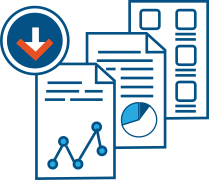GSA Schedule Market Research refers to the systematic process of gathering, analyzing, and interpreting data related to vendor offerings, pricing, customer demand, competition, and acquisition trends within the General Services Administration (GSA) Multiple Award Schedule (MAS) program. This process is essential for both government acquisition professionals and GSA Schedule contractors seeking to develop effective procurement strategies, competitive pricing models, and informed business development plans.
Market research within the GSA Schedule environment is focused specifically on goods and services available through pre-negotiated, government-approved contracts. It supports federal agencies in meeting regulatory requirements while ensuring best value, and it enables contractors to identify how and where to compete effectively within their awarded Special Item Numbers (SINs).
Purpose and Regulatory Context
GSA Schedule market research serves different but complementary functions for federal buyers and industry vendors.
For government buyers, market research is required by the Federal Acquisition Regulation (FAR) Part 10, which mandates that agencies must conduct market research before proceeding with a procurement. The goal is to determine whether commercial solutions exist to meet agency needs, identify potential suppliers, assess pricing trends, and determine acquisition strategies. When using GSA Schedules, this process helps buyers select the most appropriate vendors and contract vehicles.
For GSA Schedule contractors, market research is used to gain insight into federal buying behavior, identify competitors in their SIN(s), compare pricing, and align offerings with current demand. This intelligence is essential for successful proposal development, pricing updates, and long-term federal sales strategy.
GSA itself facilitates this process by providing publicly accessible data sources, dashboards, and acquisition platforms that serve as the foundation for robust research activities.
Tools and Resources for GSA Schedule Market Research
A wide range of digital tools and platforms are available to support GSA Schedule market research. These resources offer visibility into contract awards, vendor listings, pricing data, and procurement activity.
The most commonly used tools for GSA Schedule market research include:
- GSA eLibrary — provides detailed contract information for all Schedule holders, including SINs, company profiles, contract numbers, and award dates
- GSA Advantage! — the official online catalog of GSA-approved products and services, useful for comparing product descriptions, prices, and attributes
- CALC (Contract-Awarded Labor Category tool) — allows users to compare labor category pricing across thousands of awarded GSA contracts
- GSA eBuy — a platform where agencies post Requests for Quotes (RFQs); contractors can analyze posting frequency, agency demand, and typical requirements
- SAM.gov — the government’s centralized site for contracting opportunities, awards, and procurement forecasts
- Acquisition Gateway — a government-run portal that consolidates tools, spend data, and best practices, with category-specific insights to guide acquisition decisions
- USASpending.gov and FPDS (Federal Procurement Data System) — offer historical data on federal contract spending by agency, vendor, and product/service type
Using these tools, vendors can identify trends, assess their positioning, and refine their federal marketing and pricing strategies accordingly.
Market Research Strategies for Contractors
For GSA Schedule contractors, market research should be an ongoing, structured activity—not a one-time effort done during proposal preparation. Regularly analyzing market data allows contractors to remain competitive, make informed catalog updates, and pursue the right opportunities.
Recommended GSA Schedule market research strategies for contractors include:
- Analyze competitor offerings in your awarded SINs using GSA eLibrary and GSA Advantage! to understand how others price, position, and describe their products or services
- Track RFQs on eBuy to determine which agencies are actively buying under your SINs and what requirements they typically include
- Use CALC to benchmark labor rates if you provide professional services, ensuring your rates are in line with the market and defensible during negotiations
- Research expiring contracts and incumbent vendors through SAM.gov and FPDS to anticipate rebid opportunities and identify where agencies may be open to new providers
- Monitor procurement forecasts and acquisition plans published by target agencies to align your outreach efforts and GSA catalog updates with upcoming demand
- Evaluate past performance ratings and agency feedback (if accessible) to identify service gaps or areas where you can differentiate yourself
This ongoing market intelligence informs pricing adjustments, contract modifications, capability statements, and overall business development strategy in the federal space.
Benefits of GSA Schedule Market Research
Effective market research offers numerous benefits for both acquisition professionals and vendors operating under the GSA Schedule. It drives smarter procurement decisions, promotes competition, and ensures better alignment between agency needs and contractor capabilities.
For contractors, market research improves visibility into:
- Competitive pricing ranges and discounting strategies
- Federal demand trends by agency and product/service category
- Strategic timing for catalog updates, contract modifications, or new SIN additions
- Key differentiators in how similar offerings are packaged and promoted
- Opportunities for subcontracting, teaming, or strategic expansion
Contractors that regularly conduct market research are better positioned to remain relevant, compliant, and competitive in the dynamic GSA ecosystem.
Conclusion
GSA Schedule Market Research is a vital activity that supports effective acquisition planning, strategic pricing, and successful federal contracting outcomes. For government buyers, it ensures purchases are based on accurate and timely data. For contractors, it provides a roadmap to position offerings, win business, and maintain compliance in a competitive federal marketplace. By leveraging the available tools and committing to a data-driven approach, stakeholders across the GSA landscape can make more informed, impactful decisions that benefit both agencies and the public.


